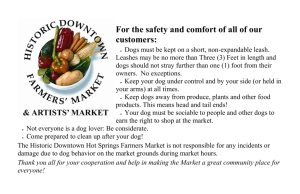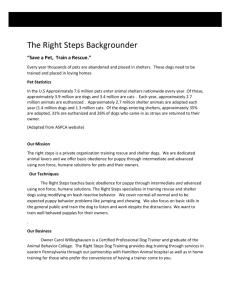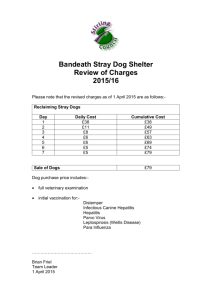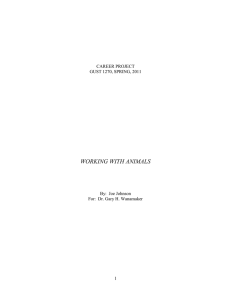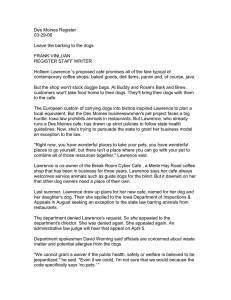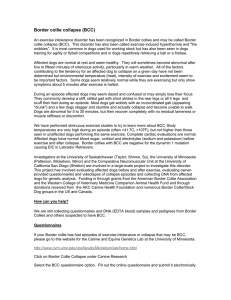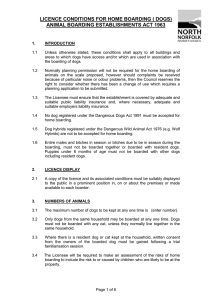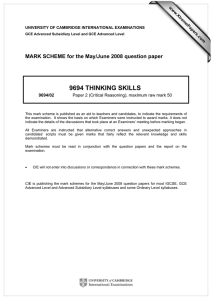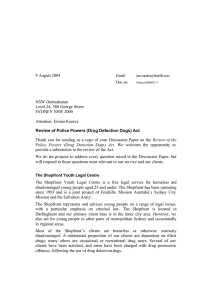Psy 331.03 Advanced Laboratory in Operant Conditioning
advertisement
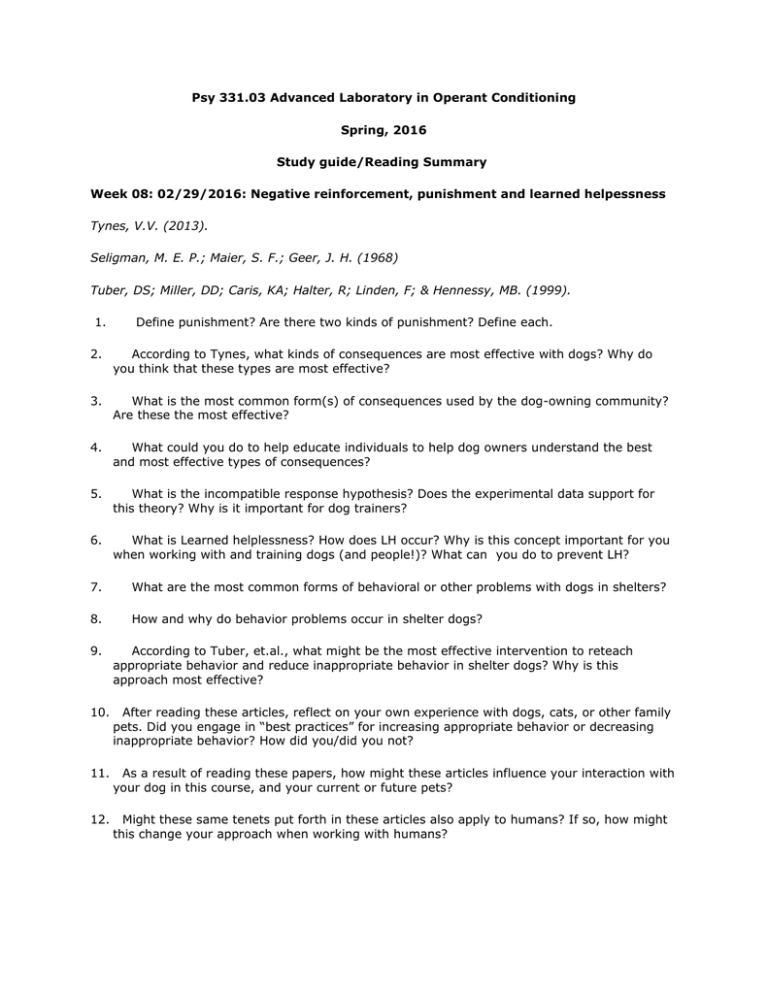
Psy 331.03 Advanced Laboratory in Operant Conditioning Spring, 2016 Study guide/Reading Summary Week 08: 02/29/2016: Negative reinforcement, punishment and learned helpessness Tynes, V.V. (2013). Seligman, M. E. P.; Maier, S. F.; Geer, J. H. (1968) Tuber, DS; Miller, DD; Caris, KA; Halter, R; Linden, F; & Hennessy, MB. (1999). 1. Define punishment? Are there two kinds of punishment? Define each. 2. According to Tynes, what kinds of consequences are most effective with dogs? Why do you think that these types are most effective? 3. What is the most common form(s) of consequences used by the dog-owning community? Are these the most effective? 4. What could you do to help educate individuals to help dog owners understand the best and most effective types of consequences? 5. What is the incompatible response hypothesis? Does the experimental data support for this theory? Why is it important for dog trainers? 6. What is Learned helplessness? How does LH occur? Why is this concept important for you when working with and training dogs (and people!)? What can you do to prevent LH? 7. What are the most common forms of behavioral or other problems with dogs in shelters? 8. How and why do behavior problems occur in shelter dogs? 9. According to Tuber, et.al., what might be the most effective intervention to reteach appropriate behavior and reduce inappropriate behavior in shelter dogs? Why is this approach most effective? 10. After reading these articles, reflect on your own experience with dogs, cats, or other family pets. Did you engage in “best practices” for increasing appropriate behavior or decreasing inappropriate behavior? How did you/did you not? 11. As a result of reading these papers, how might these articles influence your interaction with your dog in this course, and your current or future pets? 12. Might these same tenets put forth in these articles also apply to humans? If so, how might this change your approach when working with humans?

